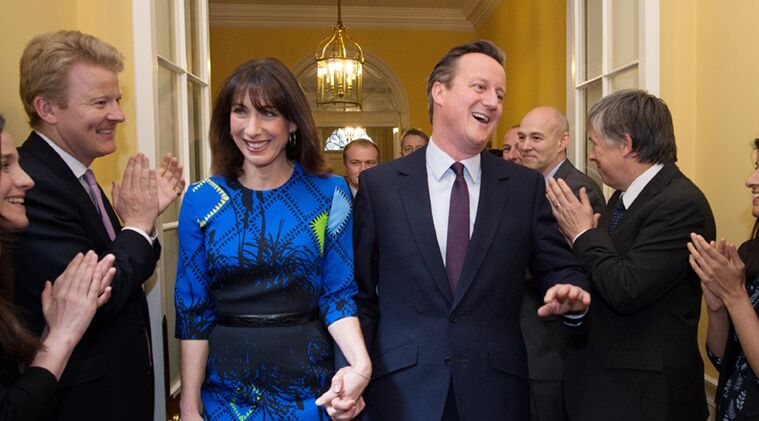
Shock Conservative Victory in UK Election
British Prime Minister David Cameron will remain in power, probably for another five years, after a shock result in Britain’s election yesterday.
Polls forecast a very tight election, with no party able to form a government alone. Many polls showed that no stable coalition at all would be possible, with some experts forecasting another election by the end of the year.
The polls were wrong—spectacularly wrong. For the past five years, the Conservatives have ruled in coalition with the Liberal Democrats. Now they have enough seats to rule alone.
It’s all change for British politics. Labor leader Ed Miliband, whom many expected to be heading toward the prime ministership today, instead resigned shortly after noon.
Nick Clegg, the former deputy prime minister and leader of the Liberal Democrats, has also resigned after the number of seats his party held fell from 57 to fewer than a dozen.
Nigel Farage, the leader of the United Kingdom Independence Party (ukip), promised that he would resign as party leader if he failed to win a seat in Parliament. He lost, and so has resigned. However, he has said that he will stand for election when ukip chooses its next leader.
There was a bloodbath of senior figures in all these parties. The most high-profile scalp taken was Ed Balls, the shadow Chancellor of the Exchequer, who failed to enter Parliament.
Now there are two big questions on the new government’s agenda: Britain’s place in the European Union and Scotland’s position in the UK.
Prime Minister David Cameron has promised in the strongest possible language to hold a referendum on Britain’s place in the EU in 2017. That referendum will now almost certainly go ahead. For the next two years, Britain’s place in the EU will be the one of the biggest issues in British politics.
https://twitter.com/AmbroseEP/status/596622936976556032
“Clearly this has huge implications for Europe,” wrote the think tank Open Europe in its live blog of the election. “We will definitely have an EU renegotiation followed by an In/Out referendum.”
It wrote, “it is starting to dawn on the good folk in Brussels that the EU referendum and renegotiation are for real.”
Voters clearly expressed strong anti-EU sentiment. ukip’s leader may have resigned; the party did have some bad news, going from having two seats in Parliament to only one. But if you look at share of the vote, it has made huge progress since 2010.
In 2010, ukip received just under 1 million votes, or 3.1 percent. This time, it won around 4 million votes, or around 12.6 percent. That’s a huge increase and shows a strong dislike of the EU.
The other big story of the election is Scotland. Here the Scottish National Party (snp) had spectacular success, going from having six seats in parliament to 56 seats. It won 50 percent of the vote in Scotland, and all but three of Scotland’s seats. That is a huge change in Britain’s politics, and Parliament over the next five years will look very different.
The snp’s success could re-open questions of Scotland’s independence. It’s not just that a party that wants Scotland to leave the UK has done really well. It is also that England voted very strongly to the right, while Scotland overwhelmingly chose a far-left party. It’s clear that Scotland is not on the same page as England politically.
These two big issues may be related. It already looks like the snp may use the EU referendum as a way to hold another vote on its place in the UK. Scotland is far more pro-EU than England. If the UK as a whole votes to leave the EU, while the Scots vote to stay in, snp will use this as an excuse to hold another referendum.
But in the meantime, David Cameron and Conservatives now have a majority, with no coalition partners. This may mean a more right-wing government. Mr. Cameron still does not have an easy task. His majority is small; he cannot afford to have his back-benchers rebel against him.
There’s still plenty to digest from today’s result. But for an overview of Trumpet analysis on some of the issues brought up, read our articles “Britain Was Warned!” and “Without Scotland, There Is No Great Britain.”
